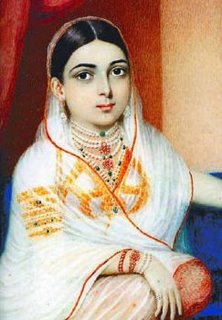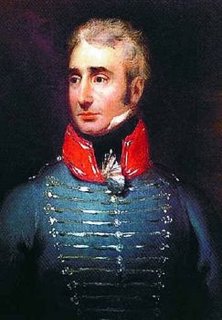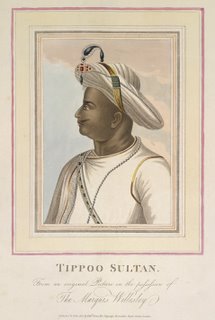I’ve been enjoying my research into India during the Regency for Wolfe’s story (Wolfe of the Ternion in The Marriage Bargain). The story will begin in India, assuming Warner’s approval of my next idea, but will mostly take place in England.
I’ve discovered some interesting things about the English in India. In the early years of the East India Company it was not uncommon for the English company men to adopt a native lifestyle, native dress, taking Indian wives. Such men were tolerated in the early years and not much was made about them, but later, closer to our time period, adopting native habits was beginning to be frowned upon or looked upon with suspicion. Typically, by the Victorian age, it was not tolerated at all, given the certain belief that the British were superior in all ways.


I’m reading White Mughals: Love and Betrayal in Eighteenth Century India by William Dalrymple, which tells the story of James Achilles Kirkpatrick, a Colonel and an Ambassador, who married Khairunnissa, the daughter of an Indian noble family. Kirkpatrick converted to Islam to marry her and—according to a web article—spied for the Nizam against the British. The marriage was a happy but brief one, lasting only four years. The couple produced two children who were sent to England. Shortly after, Kirkpatrick unexpectedly died. It was 1805. Their mother never saw them again. She was soon seduced by Kirkpatrick’s assistant and kept as his mistress until she died a few years later at age 27.
At the time of Kirkpatrick’s marriage, one of the British who expressed concern over Kirkpatrick’s allegiance to Britain was Colonel Arthur Wellesley, in India after vanquishing the Tipu Sultan.

In the book Original Letters from India by Eliza Fay there are interesting details about life in India, but also a great amount of detail about her travel to India. Across the Suez, her caravan was attacked. And later, finally in India, the ship was boarded by the local Indian governor’s soldiers and Eliza, her husband, and the other passengers and crew were taken prisoner. She hid their watches and other small treasures in her hair.
Cheers,
Diane

That sounds so fascinating, Diane. Thanks for sharing
One of the regular characters in my series came from India…I might have to ask you about your research books!
I am slowly trying to learn more about India myself, in part because about half of my students come from India, and I’d like to understand their culture better. Beyond an appreciation for lamb vindaloo and peshwari naan, that is. 🙂 So I’m interested to hear your recommendations of reading material!
While I am sure you are right about the British strongly frowning on “going native” in India during the Victorian period, I think the practice wasn’t totally eliminated. If I am remembering correctly, in Edward Rice’s terrific biography of Sir Richard Burton, he mentions that quite a few British officers took native “wives”–or mistresses, since the legality of these marriages under British law was pretty doubtful–and had native families. These families were unfortunately often abandoned when the men returned home.
Burton himself seemed fascinated with the possibilities of “going native” in other ways–I believe he was the first non-Muslim to make the pilgrimage to Mecca successfully, disguised as an Arab or Muslim Indian (I forget exactly). His amazing ability with languages must have seen him through, since most people can never become fluent enough in a foreign tongue to pass for a native.
Todd-who-wouldn’t-mind-a-nice-mango-lassi
Todd,
I am, of course, mostly interested in India during the Regency and also interested in how people lived so my reading list probably won’t help much. But here it is:
White Mughals: Love & Betrayal in Eighteenth Century India by William Dalrymple (ISBN 014200412x;
Original Letters from India by Eliza Fay, E.M. Forster, ed. (ISBN 0701210001); Begums, Thugs and White Mughals: The Journals of Fanny Parkes (ISBN 0907871887); Raj: the Making and Unmaking of British India by Lawrence James (ISBN 0312263821); The East India Company: Trade and Conquest from 1600 by Antony Wild (ISBN 1585740594 )
If anyone has other books on India, during the Regency especially, I’d love to know what they are!
India is such a fascinating country! I read about it a lot when researching my “Star of India” book (probably researched more than I needed to, given my library addiction!), and would love to do a full-length historical fiction work set there one day. Love the pics!
I am slowly trying to learn more about India myself, in part because about half of my students come from India, and I’d like to understand their culture better.
That is SO nice of you, Professor!! 🙂
Ramya-who-wouldn’t-mind-a-mango-lassi-either
Gee, I’m having trouble posting now for the past couple of days, hope this one goes through.
Well I think an India-Regency is facinating!, I read alot on India history. But I can’t for the life of me think on any titles of those books that had Regency India history that I’ve read…. It’s rare to come across the Regency India history. So I’m quite sure your new story is going to be quite stunning and refreashing!
By the way, love the pictures.
I myself have fun searching history for my books, I think it’s one of the best things about writting. It makes it worth-while, and one learns new things with each new story.
Good heavens, Ramya, is that you??!! (OK, a silly question, I admit, since the answer is always “yes.”) Small cyberverse, isn’t it?
Todd-who-is-startled
Er…um..YES, it is me..Hello 🙂
All I did was go through your research webpage, and a bit of googling to get here.
Hope you don’t mind my being here. I enjoy reading your comments. I think they’re very witty 🙂
Ramya,
Of course I don’t mind your being here. No worries! 🙂 And I’m sure the ladies who run this blog are happy for anyone who reads it! I was surprised when someone I associate with one context pops up in another, but it’s not an unpleasant surprise by any means!
And thanks for saying my comments are witty. 🙂
Todd-who-enjoys-surprises